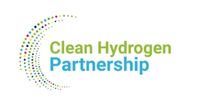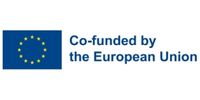Press release – Launch of the EU funded project CANDHy: Compatibility Assessment of Non-steel metallic Distribution gas grid materials with Hydrogen.
The profile of hydrogen is gaining momentum across Europe and globally with many analysts seeing its use as being vital for achieving carbon neutrality by 2050. Hydrogen has many possible applications across industry, transport, energy and building sectors. Local gas grids across Europe are therefore working hard to get ready for its transport. Using existing gas distribution grids to deliver hydrogen and natural gas blends (H2/NG) requires a thorough assessment of the impact on infrastructure and material integrity.
In this context, the CANDHy project (Compatibility Assessment of Non-steel metallic Distribution gas grid materials with Hydrogen) was selected for funding as part of the 2023 Clean Hydrogen Partnership programme. CANDHy aims to perform long-term material integrity assessment in distribution gas grids and allow the possibility of testing relevant metallic materials, different from the well-studied steels, with a methodology involving independent R&D platforms.
The work will consist in:
• Performing simultaneous testing in independent R&D platforms with a common methodology.
• Documenting and preserving a continuously updated data base with at least five material grades of different families (such as cast iron, copper, brass, lead, aluminium), both new and vintage.
• Performing mechanical tests under sustained and dynamic load conditions which will assess hydrogen sensitivity following the most relevant current and updated standards.
The project, coordinated by Aragon Hydrogen Foundation (FHa), kicked off this September 2023, in Huesca, Spain. Eight partners from five European countries (FHa, GRTgaz, TECNALIA, REDEXIS, GERG, RINA, UNIBG, SIDSA) will work together on this project for 36 months. The consortium includes research organisations, universities, gas transmission and distribution companies, and public safety companies, providing the needed complementarity of skills for a successful completion of the CANDHy project.
Project partners:
FHa is a private non-for-profit technological centre promoted by the Regional Government of Aragón (Spain), other public bodies and private companies. Its team manages R&D projects in cooperation with regional, national and EU companies. FHa has been supporting the regional strategy for the uptake of H2 and fuel cell technologies, publishing the Hydrogen Master Plan in Aragón, and showcasing the whole H2 chain from production to the efficient use, from renewable sources. FHa also develops training from students to technicians and D&C activities.
GERG, the European Gas Research Group, is the European association for R&D in the fields of gas and the energy transition. GERG brings together the expertise of European and international experts to accelerate collaborative research for the transition to a sustainable energy future, with a strong European energy network. The association’s participation in previous/ongoing European funded projects (e.g., ELEGANCy, THyGA, CEN H2 PNR, THOTH2, OPTHYCS), as well as internal projects and international exchanges provide a valuable resource to GERG partners.
GRTGAZ is a European leader in NG transmission and a world expert in gas systems. In France, the company operates more than 32,000 km of buried pipelines to transport gas from suppliers to consumers connected to its network. Within GRTGaz, the R&D Center for Energy (RICE) is the division dedicated to R&D in Research, Development, and Innovation for gas infrastructure. GRTGaz-RICE provides tested and proven industrial applications, as well as technical offers based on the development and the sharing of innovative ideas, scientific knowledge and technical expertise developed within the framework of the gas infrastructure, covering 3 main areas: 1) Integrity of metallic and non-metallic networks; 2) Improvement of operational performance, industrial safety and asset management of industrial infrastructure, and 3) Analysis, odorization, detection and metering of gases.
REDEXIS is an energy infrastructure company with a sustainable and environmentally responsible business model, committed to energy transition and economic development. The company focuses on the operation and maintenance of natural gas and LPG transmission and distribution networks, as well as on energy efficiency, mobility and the development of renewable gas projects such as biomethane or green hydrogen, thus contributing to decarbonisation and meeting the objectives of the circular economy. The company maintains a solid and continuous expansion plan with close to 1,500 million euros invested since 2010 and always works with the objective of creating constant value in the communities where it is present, with 350 direct jobs and close to 3,000 indirect jobs. In 2023, the GRESB Sustainability and Infrastructure Index once again awarded it the maximum rating of five stars in ESG (Environmental, Social and Governance), achieving a total of 95 points out of 100; and it obtained the result of “Advanced” in the Moody’s ESG Solutions Sustainability and CSR rating. Redexis is highly committed to the development of green hydrogen projects and is working on projects such as Green Hysland or Garray.
RINA is a company, supporting customers in keeping up with changes and growing sustainably. Specialises in testing, inspection, certification and engineering solutions across a wide range of markets. Competence on material performances for hydrogen transport US standards (ASME B31.12, ASME BPVC, ASTM E1681) and the European guideline (EIGA, IGC Doc 121/14). RINA collaborates with its clients to find innovative solutions to complex problems, leveraging its expertise to anticipate and tackle any challenges along the way. RINA’s ultimate goal is the improvement of the quality of life and building sustainable values for future generations.
SIDSA is a company devoted to the supply of pipes, valves, flanges, fittings and miscellaneous needed in any kind of industry. SIDSA has been progressively increasing its business lines, providing an integral supply solution to its clients for the sake of convenience, continuously adapting to the specific needs of each project. SIDSA supply to refineries, chemical and petrochemical plants, nuclear, thermal, combined cycle and thermosolar power plants, naval construction, food and water industry sectors. Currently offers a wide variety of materials for the industrial sector including pipes, fittings, screws and instrumentation. It has recently supported the engineering and supplied with suitable materials for the H2 and O2 electrolyser lines and piping to 3 installations: Green Hysland by Acciona and Enagás, Puertollano by Iberdrola, and Muskiz by Petronor and Repsol.
The University of Bergamo (UNIBG) is an Italian public university committed to create the best opportunities for the development of research and knowledge in Italy and abroad. UNIBG provides expertise in corrosion and environmental assisted cracking of traditional and innovative metals. The Materials Science and Technologies research group o UNIBG has more than 30 years of experience in stress corrosion cracking, hydrogen diffusion and embrittlement of traditional and innovative carbon steels for the oil and gas industry. In this field the group accounts more than 40 publications in international journals in the specific research field, including the effect of microstructure, mechanical properties and loading conditions on hydrogen diffusion and stress corrosion cracking susceptibility. In the last years, the group is active in the field of corrosion characterization and standardization of new alloys produced by means of additive manufacturing, mainly aluminium alloys, titanium and nickel alloys.
TECNALIA is the largest private centre of applied research and technological development in Spain, a benchmark in Europe and a member of the Basque Research and Technology Alliance. TECNALIA collaborates with companies and institutions to improve their competitiveness, people’s quality of life and achieve sustainable growth. Its main scopes of action are: Smart Manufacturing, Digital Transformation, Energy Transition, Health and Food, Sustainable Mobility, Circular Economy and Urban Ecosystem. TECNALIA has been working for more than 20 years in the field of hydrogen, and develops innovative technologies and provides high added-value services, covering the whole hydrogen value chain. Among others, TECNALIA is working on electrolyzers, membrane reactors for hydrogen production and purification, material compatibility with hydrogen, hydrogen safety, process modelling for H2 systems, H2 mobility applications and H2 combustion technologies.
About the Clean Hydrogen Partnership. The Clean Hydrogen Partnership is supporting research and innovation (R&I) activities in hydrogen technologies in Europe. It aims to accelerate the development of advanced clean hydrogen applications ready for market, across end-use sectors such as energy, transport, building and industry, while strengthening the competitiveness of the clean hydrogen value chain. The members of the partnership are the European Commission, fuel cell and hydrogen industries represented by Hydrogen Europe and the research community represented by Hydrogen Europe Research.


The project is supported by the Clean Hydrogen Partnership and its members. CANDHy Press Release ends.
For further information about CANDHy and interviews please contact Javier Sánchez (email: jsanchez@hidrogenoaragon.org)

